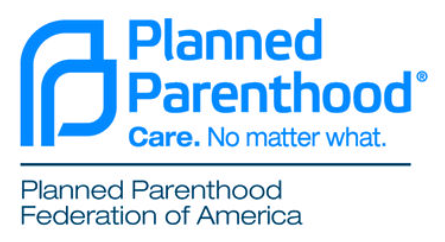Republican budget bill cuts Medicaid funding to Planned Parenthood, halting abortion services
Planned Parenthood clinics in Wisconsin (PPWI) have halted abortion services due to a new budget law targeting Medicaid funding for abortion services, passed by Republicans as a part of the One Big Beautiful Bill Act (OBBBA). Medicaid funds around $24 million annually to Planned Parenthood, but with the new legislation, the organization had to choose between halting abortion services to keep clinics open for other reproductive screening, or to continue to provide abortions and lose the funding.
Dr. Amber Lusvardi, an associate professor in the Department of Political Science at the University of Wisconsin-Oshkosh, explained.
photo courtesy of the International Planned Parenthood Foundation
“Changes have been made to the way federal Medicaid dollars are being allocated following the adoption of the budget reconciliation bill commonly known as the ‘One Big Beautiful Bill Act’,” she said. “This new legislation bans Medicaid dollars from going to any clinic that provides reproductive health and planning services along with abortion care.”
This doesn’t just involve abortions, but encompasses other aspects of reproductive treatment.
“This means that Planned Parenthood could no longer receive Medicaid reimbursement for any types of preventative health screening services or reproductive health services,” Lusvardi said.
The cut of Medicaid is important for not only Planned Parenthood but also its patients. According to Planned Parenthood Defunding Regional Data Sheets, around 60% of PPWI patients rely on Medicaid to receive these services. Among the remaining 40% of patients who do not have Medicaid, half are likely uninsured or weakly insured. This applies to clinics in most of Wisconsin, including Oshkosh.
The One Big Beautiful Act builds upon the Hyde Amendment of 1976. The Hyde Amendment, similarly, banned federal funds like Medicaid for most abortion services. Lusvardi said that this additional bill creates a funding crisis for abortion centers like Planned Parenthood.
“So this bill does not end federal funds for abortion, since that has been illegal since 1976,” she said. “However, it does create a situation in which abortion providers who collect Medicaid payments must make decisions on how they would recover the loss of Medicaid dollars.”
This law solely affects and cuts funding for abortion services but does not include other services like STI treatment of contraceptives. The OBBBA specifically targets clinics like Planned Parenthood and directly cuts off funding, which the Hyde Amendment did not. Leah Kelm, Research Assistant for the Office of State Representative Lori Palmeri, noted that the cutting of Medicaid also cuts access to many health-related outlets.
“This means that PPWI patients would not be able to use Medicaid coverage for other health care services, including obtaining contraception, testing for STIs, cancer screenings, and postpartum care,” she said. “Medicaid funding is an essential part of how many Wisconsinites access services.”
As for the future, abortion is not banned in Wisconsin. This law is a temporary cut of Medicaid for one year, yet challenges the funding of abortion clinics within that time period. Kelm recognized that certain groups of Wisconsin residents would be especially impacted by the legislation.
“Low-income people in and out of Oshkosh will be impacted by this change. While Planned Parenthood is not the only provider of these services in Wisconsin, they are a large player and have continued to be accessible to those who do not have health coverage,” she said. “There are still options, though the wait times will likely be increased with the discontinuation of services by Planned Parenthood.”
Since the changes are recent, the impact has yet to be observed. Planned Parenthood has not yet taken a severe blow by these changes.
“I am not aware of any Wisconsin Planned Parenthood clinics closing since the adoption of the reconciliation bill, so those clinics will still be open to provide other reproductive health and screening appointments,” Lusvardi said.
Rather, operations are simply on pause.
“There were previously three Planned Parenthood clinics in the state that did offer abortions, but those have been halted at this time,” Lusvardi said.
On the other hand, Gracie Skogman, Legislative Director of Wisconsin Right to Life, sees this as an opportunity to promote alternatives to abortion in situations like crisis pregnancies.
“As pro-life advocates, we care deeply about providing support and services for women and girls facing challenging or unexpected pregnancies,” she said. “Wisconsin Right to Life provides emergency grants to women, and the over 50 pregnancy resource centers across our state offer free support and services.”
Skogman and fellow pro-life advocates in Wisconsin do not know when or if Planned Parenthood will be brought back to original funding, but they do consider the legislation shift to be positive.
“In regard to restoring reproductive services, this would be a question best answered by Planned Parenthood of Wisconsin or similar organizations that seek to provide abortions,” she said. “But the goal of Wisconsin Right to Life is to change hearts and minds to favor life and create a culture in which every innocent life is protected.”
Winnebago County Health Department Officer Doug Gieryn sees the lack of available abortions as a lack of necessary healthcare services for Wisconsinites.
“Abortion is a type of essential medical care, and restricting access has significant negative public health consequences,” he said. “ Planned Parenthood was put in the position of having to stop providing abortions at their clinics so they could remain open to provide access to other kinds of health care, like cancer screenings and birth control.”
Gieryn acknowledged that support of such services is more common than some realize, even crossing political lines.
“While abortion has become a highly politicized issue at the national level, research consistently shows that most people support access to comprehensive sexual and reproductive health care,” he said.
by Yui Watanabe
Published November 3, 2025
Oshkosh West Index Volume 122 Issue II
